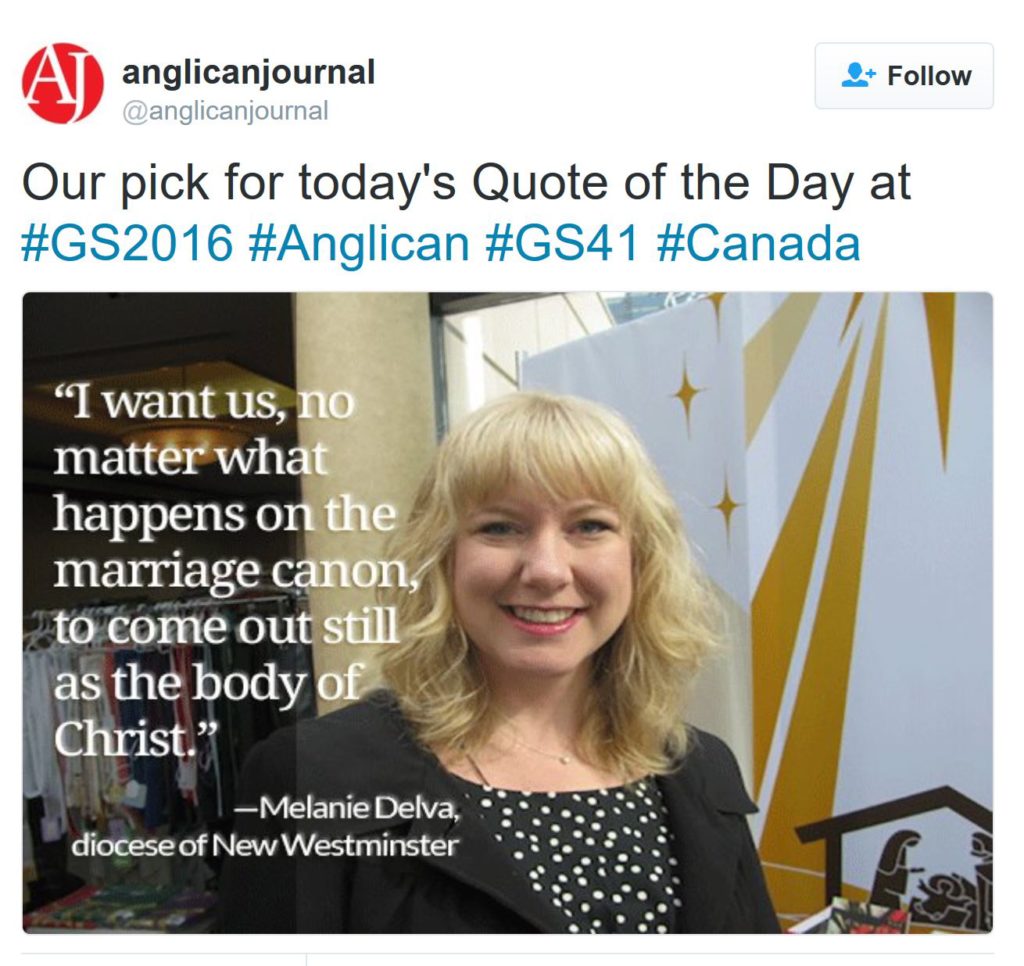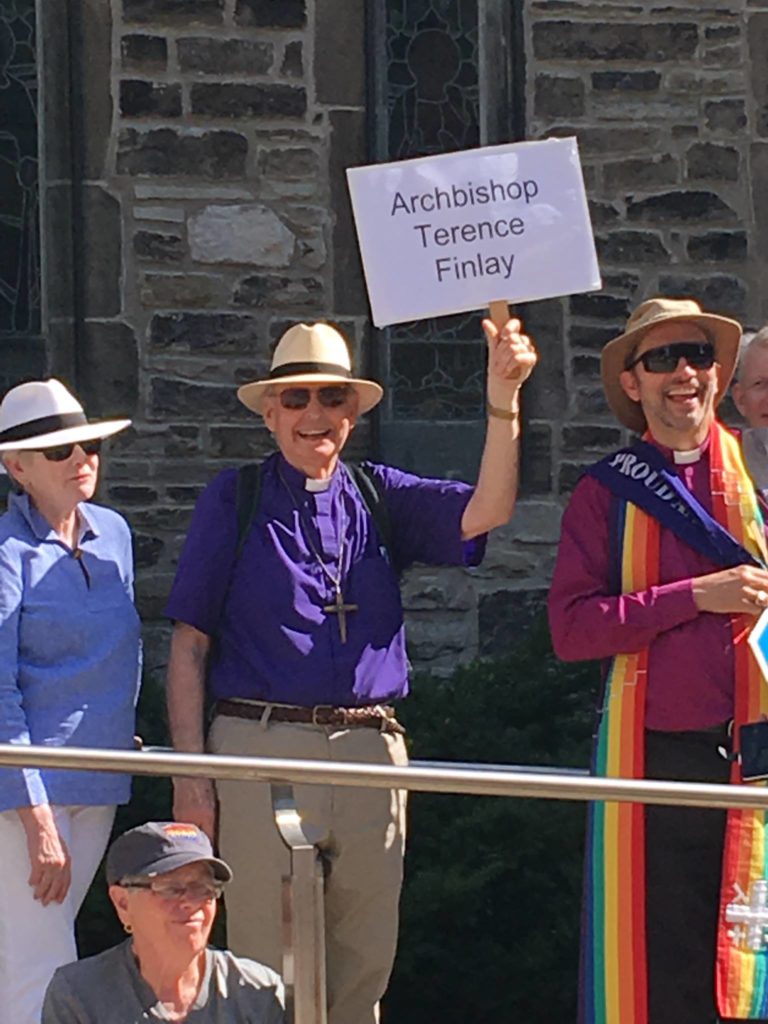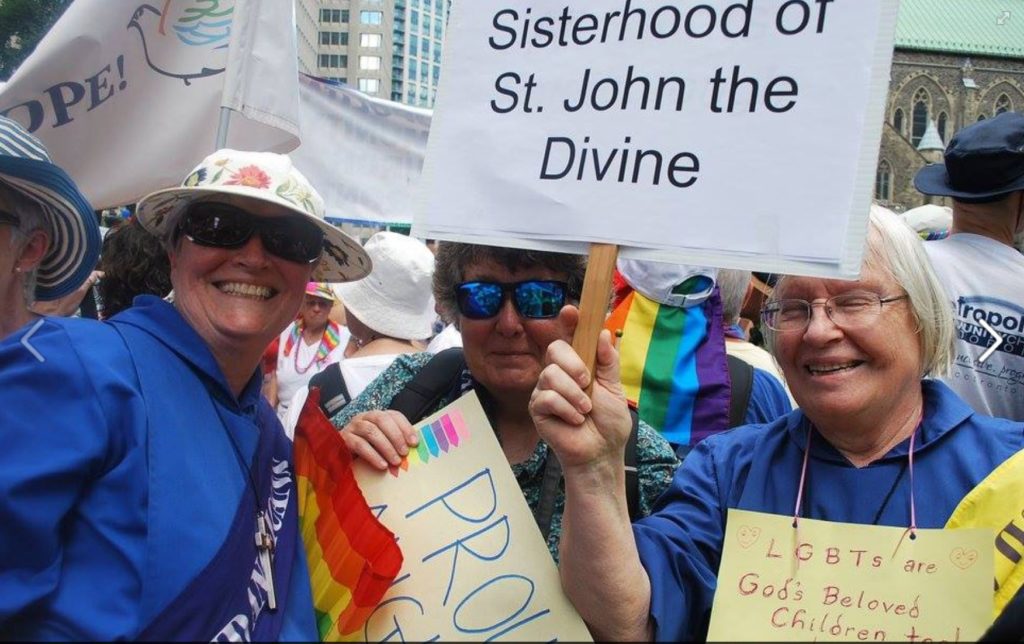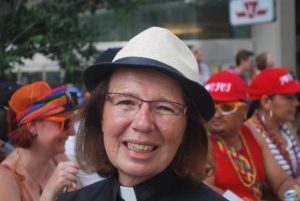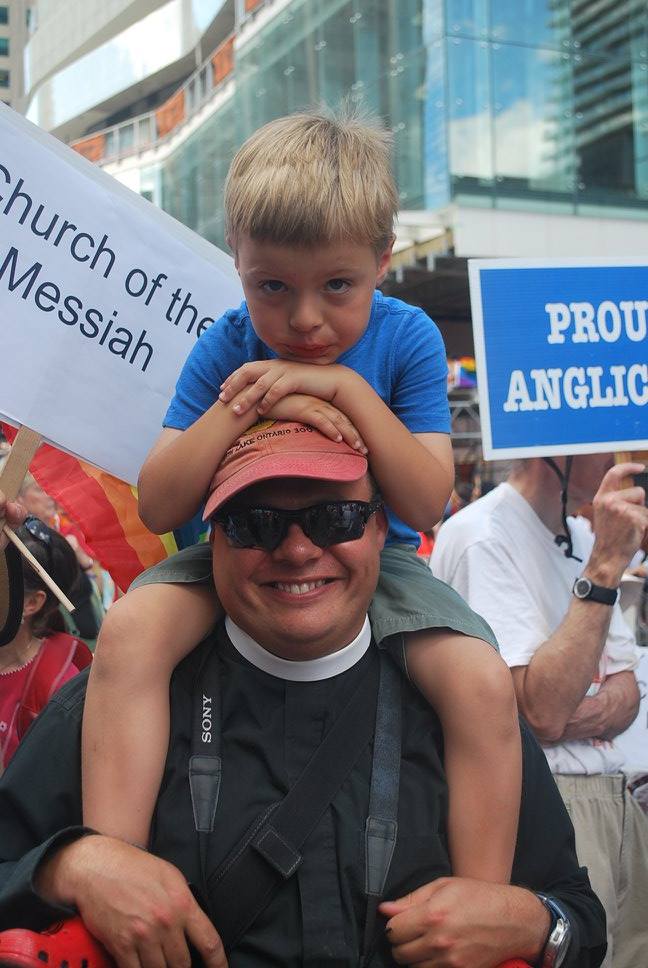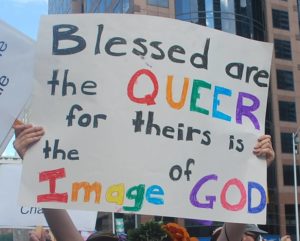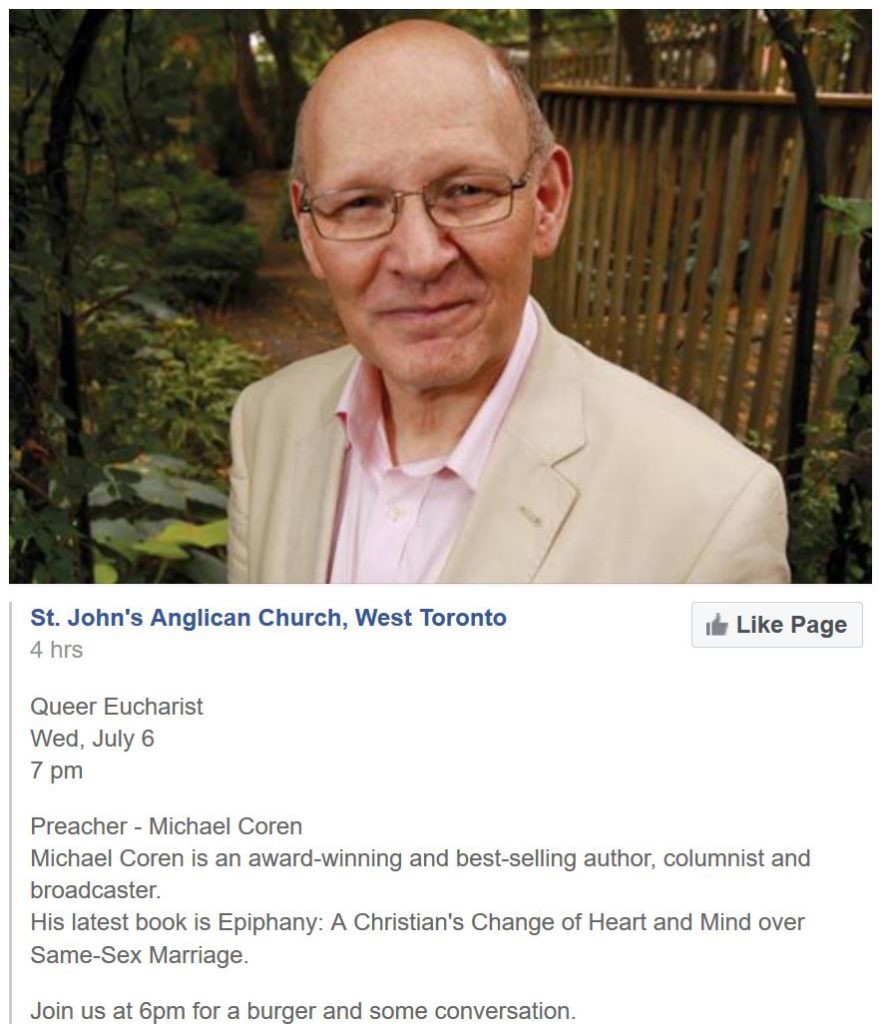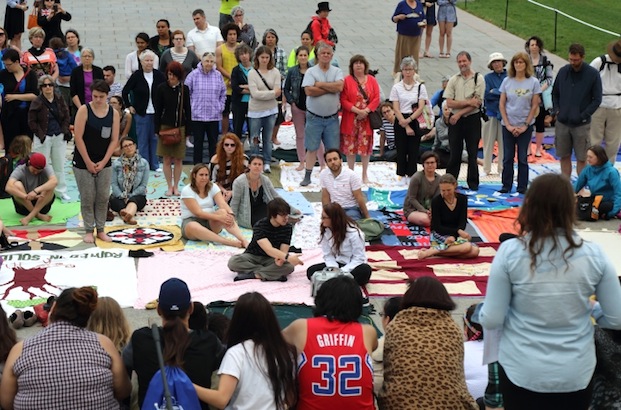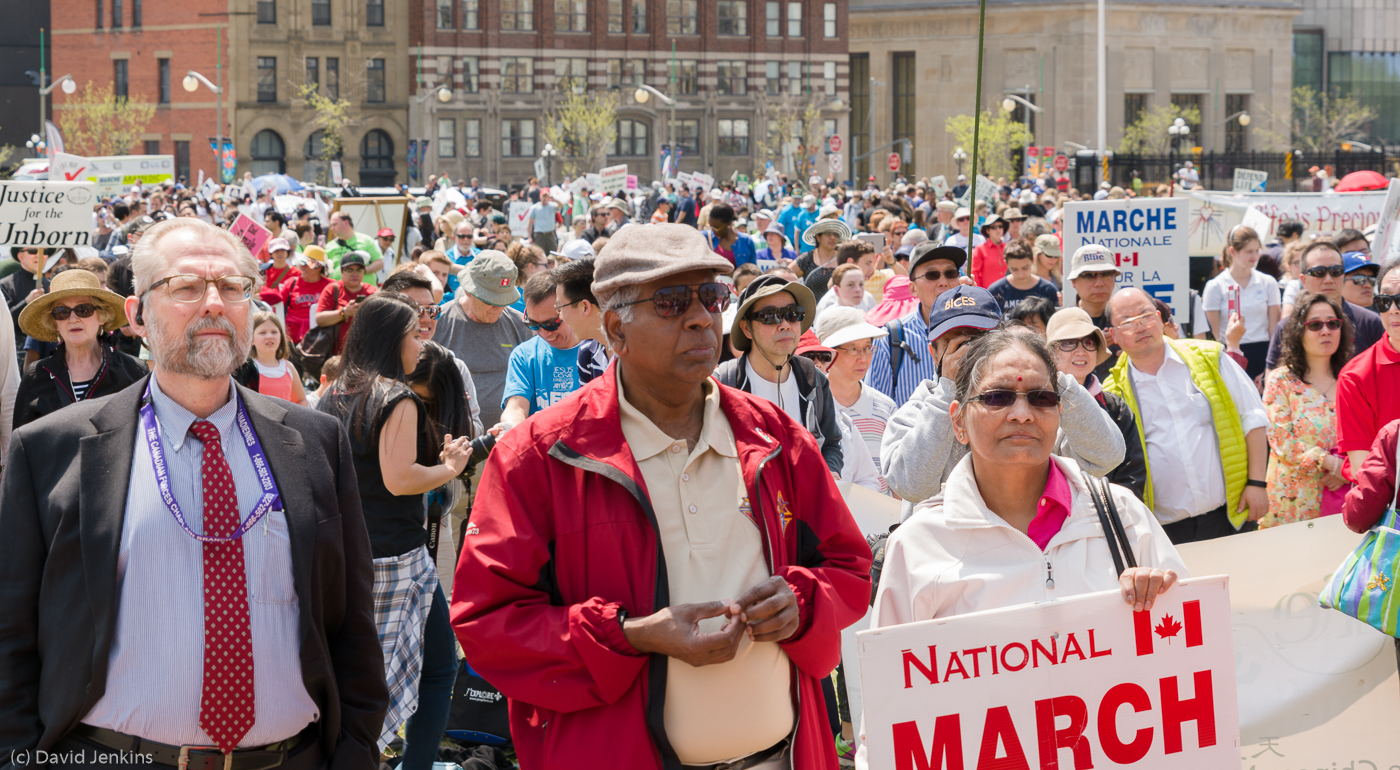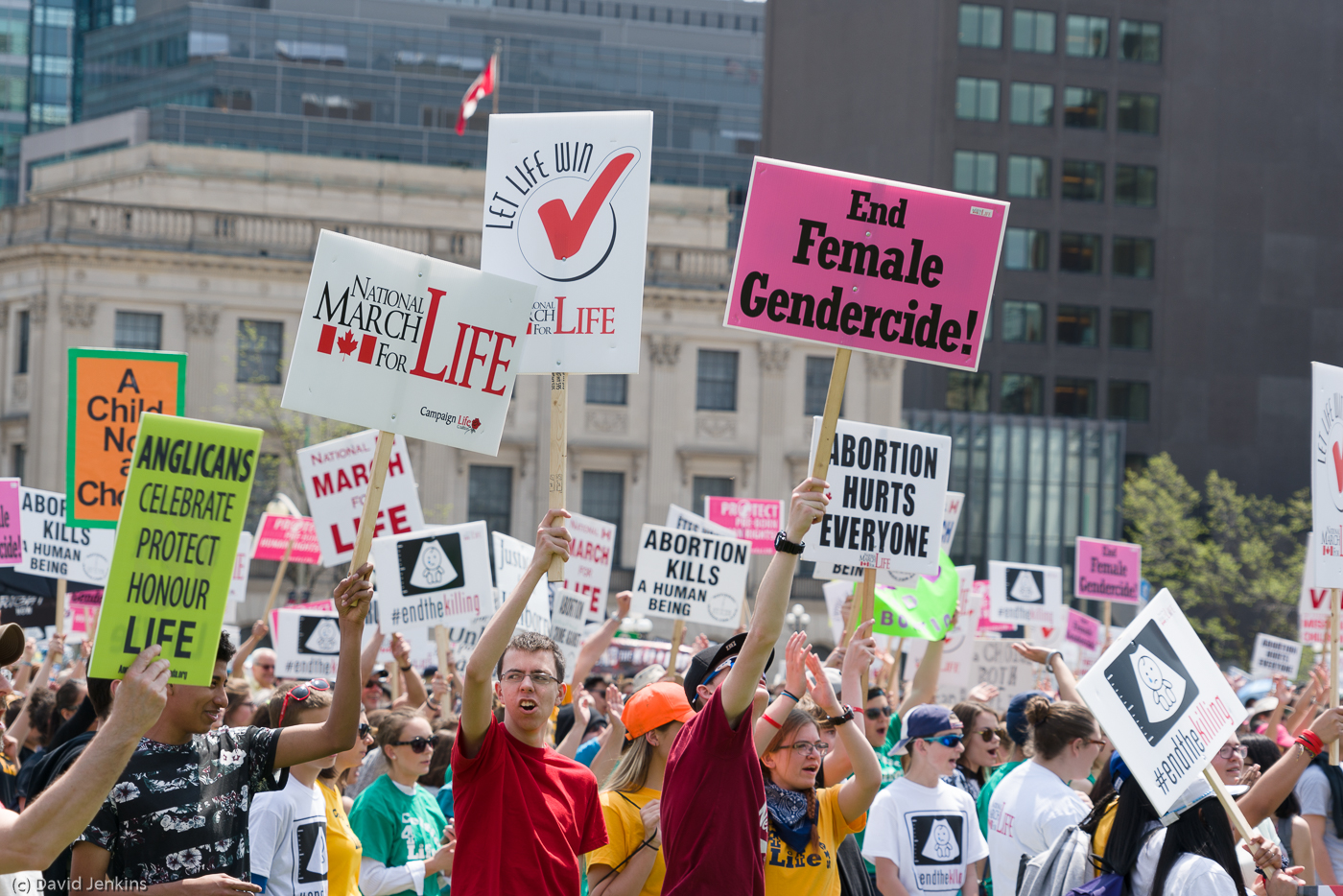For Hiltz, whether the church should marry or not marry same-sex couples all comes down to inclusion. Not, I hasten to add, the inclusion in the church of the just the person but also the inclusion of what the person does. In Hitz’s mind Christianity must affirm, accept, condone and, naturally, include not only the person – his essence – but the expression of his essence, how, in the vain little pantomime of his three score and ten years he acts out his essential nature. At least, when it comes to sex; in particular, homoerotic sex.
That is because the Anglican Church of Canada has largely abandoned the idea that, because of the Fall, man is inherently sinful and all creation is subject to the bondage of corruption under the weight of that sin. Thus, we are led to the inescapable conclusion that the urges of the church’s homosexual clergy are there because God put them there.
A lusty young heterosexual could make use of the same principle to explain his unfettered promiscuity, too, of course. But, then, there aren’t many lusty young heterosexual clergy in the ACoC.
From here:
This is the body that through its history has also wrestled with numerous issues within the Church and in the world at large over which we have often found ourselves in deep disagreement. Many of the issues have centred around inclusion—the place of women in the councils of the Church, the place of women as priests and bishops, the place of young people and their voice and vote, the place of children at the Eucharistic table, the place of those married and divorced and wanting to marry again, the place of religious communities whose life transcends diocesan boundaries, the place of Indigenous Peoples from status as observers, to guests, to partners, to members in Synod, and the place of lesbian, gay, bisexual, transgendered and questioning people within the Church and their equality of access to all the ministrations of the Church including the solemnizing of their marriages.


